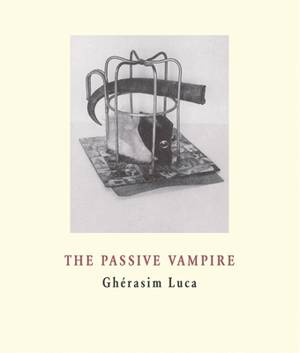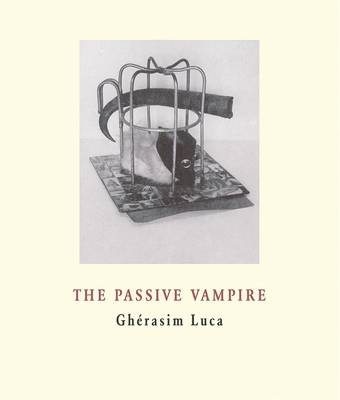
Bedankt voor het vertrouwen het afgelopen jaar! Om jou te bedanken bieden we GRATIS verzending (in België) aan op alles gedurende de hele maand januari.
- Afhalen na 1 uur in een winkel met voorraad
- In januari gratis thuislevering in België
- Ruim aanbod met 7 miljoen producten
Bedankt voor het vertrouwen het afgelopen jaar! Om jou te bedanken bieden we GRATIS verzending (in België) aan op alles gedurende de hele maand januari.
- Afhalen na 1 uur in een winkel met voorraad
- In januari gratis thuislevering in België
- Ruim aanbod met 7 miljoen producten
Zoeken
Omschrijving
Originally published in 1945 in Bucharest, The Passive Vampire caught the attention of the French Surrealists when an excerpt appeared in 1947 in the magazine La part du sable. Luca, whom Gilles Deleuze referred to as one of the greatest poets, attempts here to transmit the "shudder" evoked by some Surrealist texts, such as André Breton's Nadja and Mad Love, probing with acerbic humor the fragile boundary between "objective chance" and delirium. Impossible to define, The Passive Vampire is a mixture of theoretical treatise and breathless poetic prose, personal confession and scientific investigation -- it is 18 photographs of "objectively offered objects," a category created by Luca to occupy the space opened up by Breton. At times taking shape as assemblages, these objects are meant to capture chance in its dynamic and dramatic forms while illuminating the nearly continual equivalence between our love-hate tendencies and the world of things.
Specificaties
Betrokkenen
- Auteur(s):
- Illustrator(s):
- Vertaler(s):
- Uitgeverij:
Inhoud
- Aantal bladzijden:
- 139
- Taal:
- Engels
- Reeks:
Eigenschappen
- Productcode (EAN):
- 9788086264318
- Verschijningsdatum:
- 15/04/2022
- Uitvoering:
- Paperback
- Formaat:
- Trade paperback (VS)
- Afmetingen:
- 170 mm x 200 mm
- Gewicht:
- 249 g

Alleen bij Standaard Boekhandel
+ 27 punten op je klantenkaart van Standaard Boekhandel
Beoordelingen
We publiceren alleen reviews die voldoen aan de voorwaarden voor reviews. Bekijk onze voorwaarden voor reviews.









